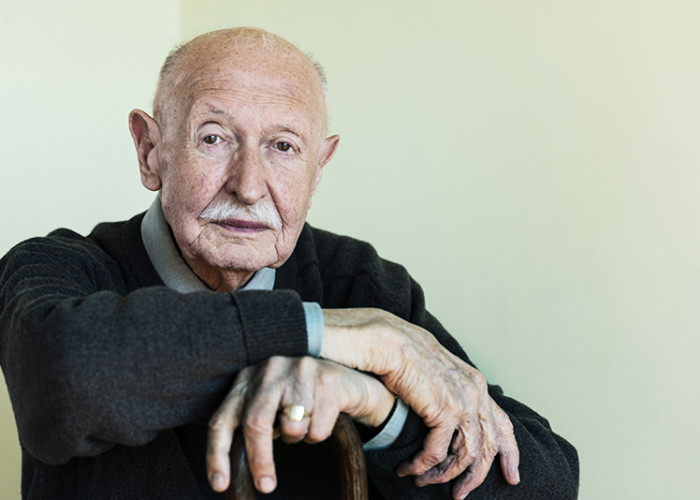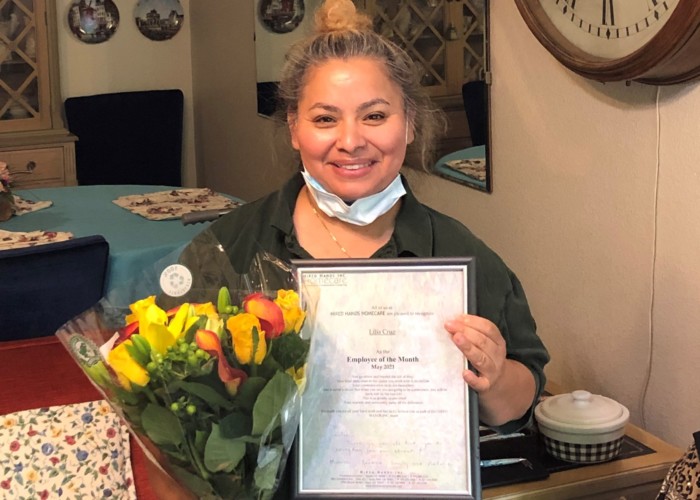Caregivers
Ian is AWESOME!
Today we have the pleasure of honoring Mr. Ian B as our Caregiver of the Month! We have had the pleasure of working with Ian since 2018. Ian joined the Napa team coming over from the Marin Team in March of this year and has been such an amazing caregiver to Mr. Jackson and Mr. Williams, his two regular Clients.
Ian is such a pleasure to work with! Clients having nothing but the best to say about him and the care he provides. He is professional, kind, knowledgeable, encouraging, insightful, a great communicator and always willing to help with such a humble demeanor. Ian is definitely one of those caregivers we feel honored to work with and excited to see his future unfold as he continues his journey to help more people someday as an RN!
Ian, please know that all of us … Read More »
Is It Possible to Juggle Work and Caregiving?
Trying to juggle work and caregiving can have a negative impact on everyone involved.
In the modern world, it is often difficult enough to maintain a work-life balance, but that is made nearly impossible when it comes to attempting to juggle work and caregiving. Up to 25% of employed adults are providing some level of care for aging parents or family members. How do you work a full-time job when a loved one needs care around the clock? Oftentimes, it simply is not possible. Hired Hands Homecare, providing home care in Napa, CA and the surrounding areas, has tips to help.
The Importance of Aging with Dignity for Older Adults
Aging with dignity is important for an older adult’s self-esteem.
It is quite easy to get swept up in the daily tasks of caregiving for a senior you love. There’s so much to be done, and sometimes it’s just easier and a lot more efficient to do it all on your own, letting the senior relax. After all, our elders have taken care of things for a lifetime; haven’t they earned a break?
The truth however, is that aging with dignity is incredibly necessary to our wellbeing, something that comes from having a sense of purpose and meaning in life. And even though ensuring safety is, without a doubt, our primary concern, there are ways to empower a senior loved one in your care to remain in control whenever possible. For instance:
Work together on projects. While standing … Read More »
Honoring Kimberly!
We are ecstatic to announce and honor Ms. Kimberly McP as our June Caregiver of the Month!
Kimberly is such an amazing, caring, & kind person. Her heart is full of love, and she brings a cheerful smile to every client she cares for. The lucky folks that have had the opportunity to work with her are always made to feel special.
How special you ask? Our client Nancy comments “we are absolutely blessed to have Kimberly as part of our lives.” WOW!
We are beyond grateful to work together with Kimberly, and very much appreciate the person and professional that she is! The Clients of Hired Hands Homecare – Team Napa could not be more lucky!
Tips to Safely Dispose of Unused Medications
Learn about where to dispose of unused medications safely.
With many older adults taking multiple prescriptions, and with physicians adding and changing dosages and medications to determine the ideal solutions, it’s essential to know where to safely dispose of unused medications. There are several options:
Check labels. The medication’s label or informational literature might provide instructions on how to properly dispose of the drug. You could also consult the pharmacist for suggestions.
Participate in National Prescription Drug Take Back Day. This is the suggested method to properly dispose of unwanted medications, and is held once a year in locations across the country by the United States Department of Justice Drug Enforcement Administration. Discover the location closest to you as well as the next date for the event here.
Exercise caution before flushing medication down the toilet. Flushing medications down the toilet … Read More »
Lilia is such a Superstar!
Please join us in congratulating Lilia for being our Caregiver of the Month for May!
Lilia has been with Hired Hands Homecare for over 4 years and has really been there when we needed her! She is soft spoken, calm and sweet with a wide variety of skills. Her flexibility and the ability to go with the flow is often called upon, and she absolutely delivers! Most importantly, our Clients and the families Lilia works with all give her high accolades, and glowing reviews of her ability to anticipate their particular needs.
Lilia – THANKS for being You, and doing all you do!
~ The HIRED HANDS HOMECARE family
Caring for Elderly Parents: What to Do When Siblings Avoid Helping
It’s not unusual for some siblings to avoid helping to care for elderly parents.
If you are responsible for most of the care for elderly parents while your siblings distance themselves from helping, you are not alone. In fact, 50% of all family caregivers are caring for an aging loved one alone, based on a recently available report from AARP.
Understanding why this situation is so typical – and learning what can you do to safeguard your own personal health, which can easily be impacted by providing care for a senior loved one on your own – is critical. Our aging care experts have the answers.
Family members do not recognize there is a need for assistance. It may very well be that from the outside looking in, you have everything covered and running smoothly, and are not in … Read More »
Care Tips for Seniors With Dysphagia
Seniors who have dysphagia can benefit from a variety of easy-to-implement care tips.
There’s nothing better than a tall, cold drink on a warm summer day, but for someone with dysphagia, this simple pleasure can be downright dangerous. There are millions of seniors with dysphagia – or trouble swallowing – due to weakened mouth and/or throat muscles. Alzheimer’s, MS, cancer, and stroke are all culprits as well.
Signs of dysphagia include:
Drooling
Coughing, gagging or choking when eating, drinking, or taking medication
A gurgling sound in the senior’s voice after eating/drinking
Additionally, if you suspect dysphagia in an older family member, ask him or her the following questions – and check with the doctor right away for further guidance:
Are you coughing or choking when trying to eat or drink?
Are you having frequent problems with food “going down the wrong pipe?”
Is food … Read More »
Tips for the Sandwich Generation: Strike a Better Work-Life Balance
Hired Hands Home Care, providers of hospice care in Pleasanton, CA and nearby areas, have gathered tips for the sandwich generation.
Ask anybody in the sandwich generation if they’ve achieved a healthy life balance between caring for an older loved one, children at home, career, self-care, household management, etc., and you are likely to receive a similar refrain: perhaps a sigh of longing, a snort of frustration, or a rolling of the eyes. And if you happen to be a sandwicher yourself, you may be struggling to set aside the time to even read this article completely! Nonetheless, allow yourself just a few minutes to consider the tips for the sandwich generation below that may just help you to breathe easier and let go of some of the pressure and stress associated with striking a better work-life balance:
Read More »
Overcoming Caregiver Dread is Achievable with These Three Tips
Hired Hands Homecare, providers of elderly care in Santa Rosa and the surrounding areas, provides tips for overcoming caregiver dread.
What are your first thoughts when you wake up in the morning? Are you looking forward to what your day holds, or would you like to crawl back under the covers and stay there? If you are experiencing more dread than delight when you think through your caregiving responsibilities for the day, you are not alone. Overcoming caregiver dread is possible, it just takes a little presence of mind.
Contact us online or call us at (866) 940-4343 to learn about how we can help your family
Distinctly different from anxiety, depression, and even burnout, caregiver dread is an exhausted, heavy sense of duty. It comes from feelings of over commitment together with the desire to get away from obligations. … Read More »

















